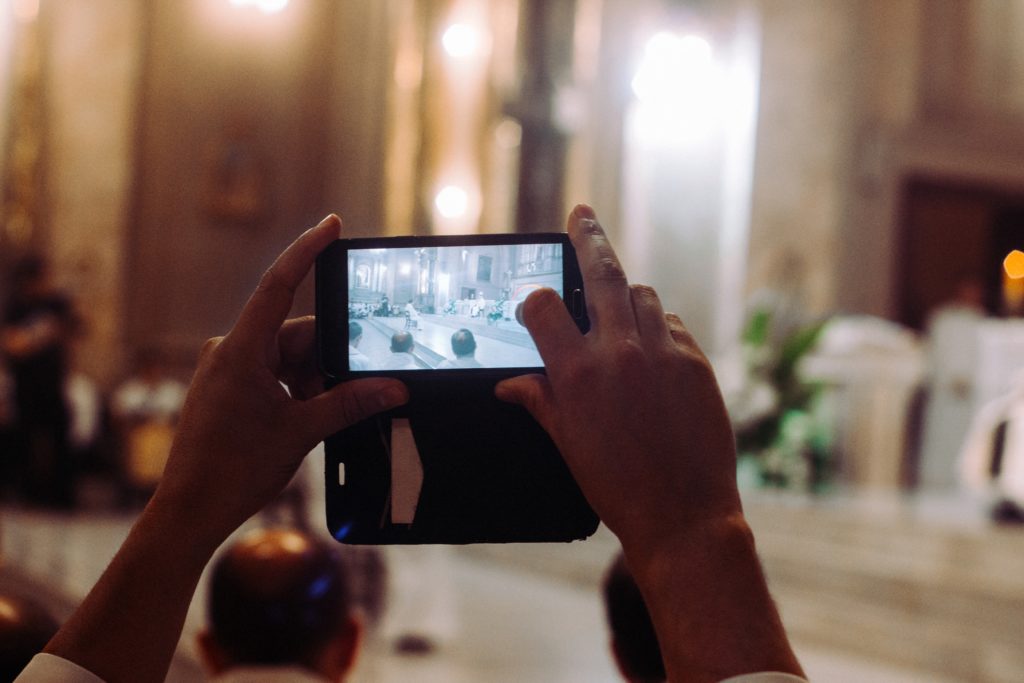If you’re like me, you spend way too much using glowing rectangles to consume news items sent by an algorithm designed to keep the attention of your eyeballs for as long as possible.
The algorithm “knows” that I’m interested in Catholic stuff, so naturally I’m fed all kinds of Catholic stuff. But it isn’t “good news” Catholic stuff. Most of it is “bad news” Catholic stuff.
I’ve known the “if it bleeds, it leads” rule going back to my broadcast journalism class in South Bend, Indiana, circa 1995. And I guess the race to the bottom of the brain stem still works the same way. The algorithm “knows” that I’ll stay scrolling longer if it can make me horrified or angry. Bonus points, apparently, if I get horrified and angry.
The “content” delivered to my devices generally leaves me horrified and/or angry, which in turn leaves me (along with a dramatic and increasing number of others) anxious and depressed. And I’m especially anxious and depressed about things in the Catholic Church: the sex abuse crises. Bankruptcies. Failing schools and parishes. Deepening divisions.
But every so often, I get pulled out of this virtual world and into the real, embodied, and genuinely communal world of the Church, where I witness things that make me effusively positive about her.
The last time this happened was a visit to Sacramento to give a workshop for leaders at the California Catholic Conference (which I wrote about here). Even amidst so many difficulties, these folks stayed positive, faithful, and holy.
It happened again recently, and again thanks to an invitation to California, this time from the Archdiocese of Los Angeles to give a workshop on bioethics for those who work in various mission-centered places of Catholic health care.
While in the area, I was also able to encounter the Church in some other ways. One was being introduced to Christ Cathedral of Orange County, an astonishing glass structure which welcomes some 11,000 Catholics for Mass each weekend — liturgies drawing people of every race, language, and way of life from around the world. (The Orange Diocese is led by the indefatigable Bishop Kevin Vann, a transplanted Midwest boy like me.)
I was also able to have dinner with some of the men and women of the LA Focolare houses, a wonderfully positive, international, joyful, dedicated, and holy group of people. And, as Pope Francis says, always smiling and always — somehow — able to live in the present moment. (Something that is close to the opposite of a life trapped in online scrolling.) They have their message of unity, faithfulness, and dialogue to bring to a wounded and divided Church and world, and it is a message we need now more than ever. Again, what a time to be with folks who are such a light in the darkness!
At the bioethics workshop itself, I was able to engage with people making a real difference throughout the Archdiocese of Los Angeles. Toward the end of my formal remarks I warned the audience that, as an academic who doesn’t live in reality, I was going to make some unrealistic suggestions that perhaps the Church of Los Angeles could aspire to.
I suggested that, in response to the dementia crisis, we can and should repurpose many of our empty buildings (convents, schools, rectories, etc.) for care homes that facilitate a counter-culture of encounter and hospitality. The new buildings should have bars, large projection screens, and more so that locals can come have a drink, watch the big game or recent movie, or just hang out with the residents. Children should do their confirmation hours there helping out and creating a series of mutually beneficial intergenerational relationships. Multiple age groups and walks of life should work the community garden to bring fresh produce to the tables of the residents.
At the break, one of the several Carmelite Sisters of the Most Sacred Heart of Los Angeles who attended — all of whom were professionals in health care — came up to me and said basically, “You know what you just proposed? We’re actually working on putting it into practice.” And wouldn’t you know it, through their unique skilled nursing and assisted living facilities, they actually are working replacing our consumerist throwaway culture with an outreach that is based on the Holy Father’s call for intergenerational encounter and hospitality for the elderly, sick, and disabled. We need to do all we can to support such beautiful and essential ministries. (You can donate to the sisters here.)
Now, I’m not saying we should not shrink from our responsibilities to address difficulties in the Church. But these kinds of experiences help avoid getting trapped in the “if it bleeds, it leads” expectation. The key is to keep perspective, live within the embodied reality of the Church, and avoid getting doused by the firehose of bad news coming from social media.
Are there people who are hurting? No doubt. Are there bad things going on about which we must stay informed? Absolutely. Is the Church in most places in good hands with people doing grace-filled things? You better believe it. Just put the phone down and take a look.

